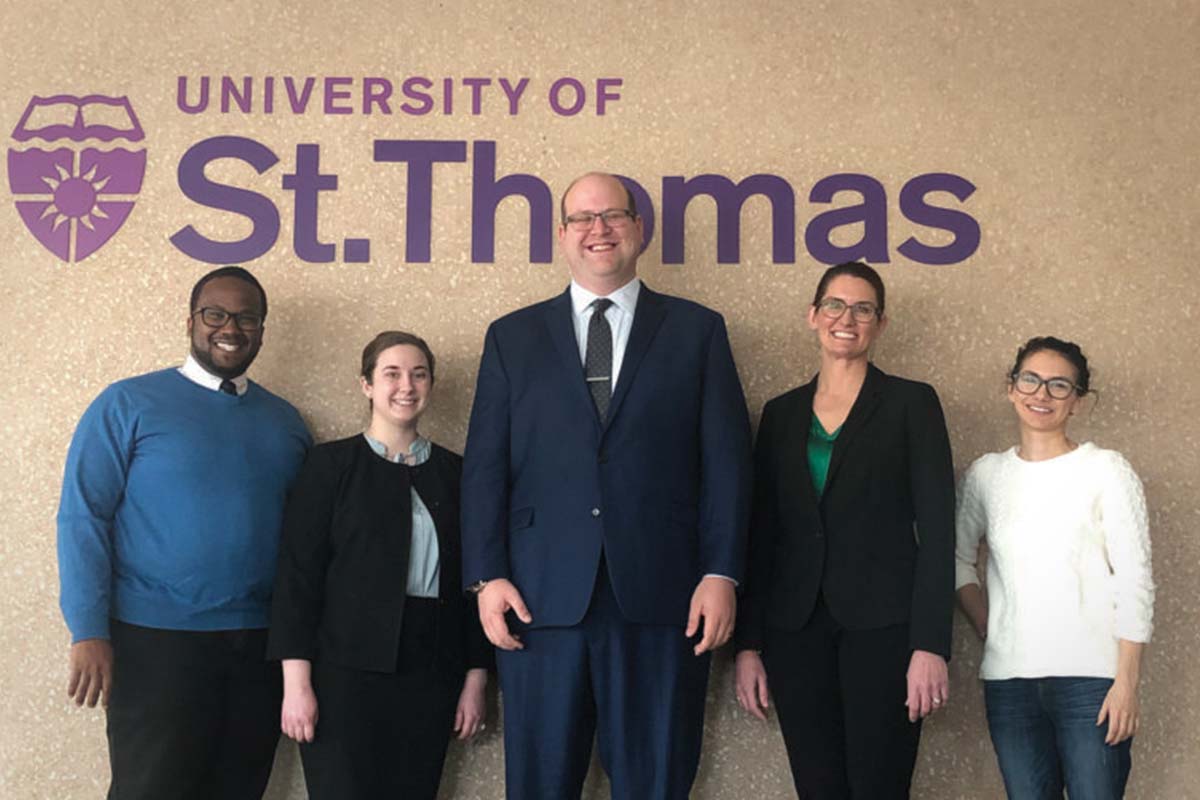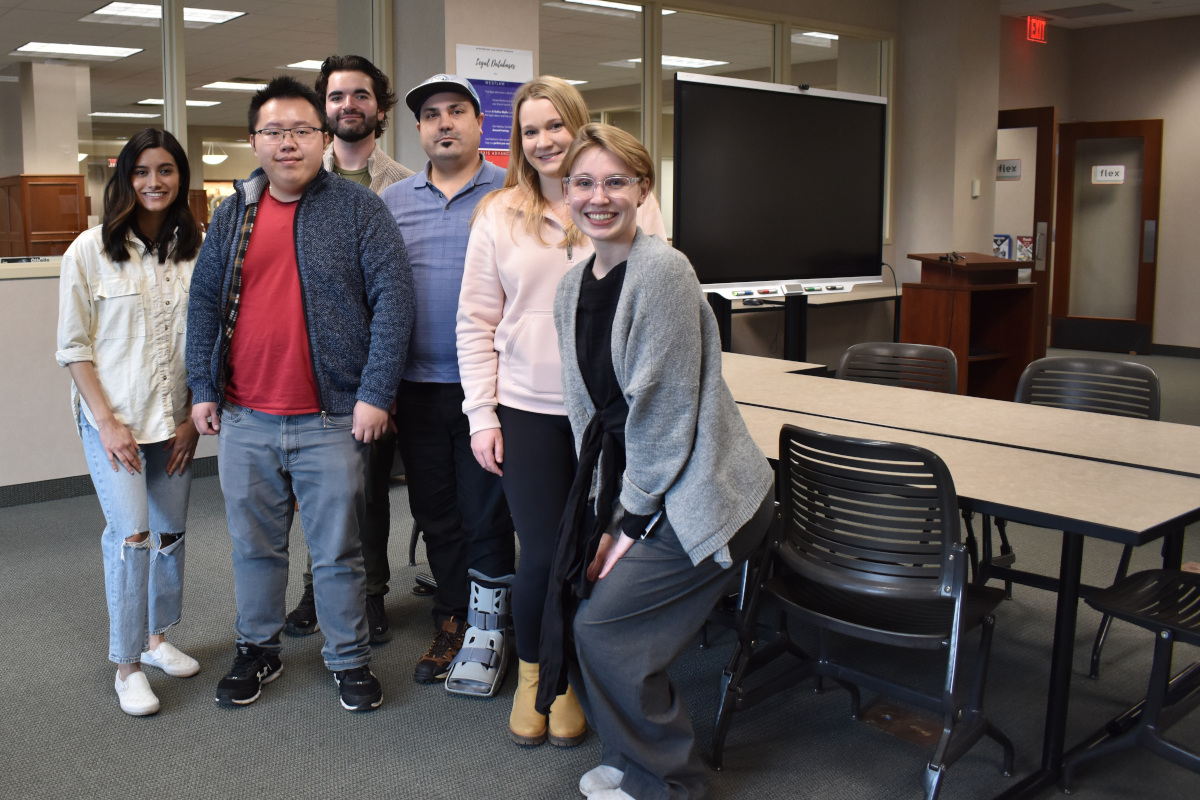Technology, Intellectual Property and Information Privacy Law
Among the most important and fast-developing areas of legal practice are those concerning technology (especially artificial intelligence), intellectual property (ownership rights in technological innovation), and information/data privacy. You have many opportunities at St. Thomas Law to begin pursuing these fields for your legal career.
Training in law and technology at St. Thomas begins in three 1L courses—Business Basics, Serving Clients Well, and Lawyering Skills—that introduce students to the use of AI in law practice, businesses, and society. Students may then pursue elective courses in AI and the law, coding, and other technology subjects. These courses aim to give students skills to adapt and lead in “the technology of law”: the current and future uses of technology in law and law practice. The courses also introduce students to “the law of technology”—bodies of law that govern and regulate technology—with a special emphasis on ethical governance of technology so as to serve human dignity and welfare.
Among the “laws of technology,” several areas are particularly central at St. Thomas Law. Intellectual property (IP) courses cover the major statutes protecting trademarks, copyrights, patents and trade secrets. Courses also cover related areas of law that may be part of a practice focused on innovation and technology, including information/data privacy, cybersecurity and entrepreneurship.
Through classroom and experiential courses (clinics, externships and national competition teams), students get an introduction to the principles underlying IP and information-privacy law; to practical aspects such as drafting patent and trademark applications, developing cybersecurity policies and handling employee inventions; and to broader issues such as the law's response to new technologies, the interaction of technology and privacy, protecting IP and privacy in other nations and the relationship of IP to social justice and economic development.



















